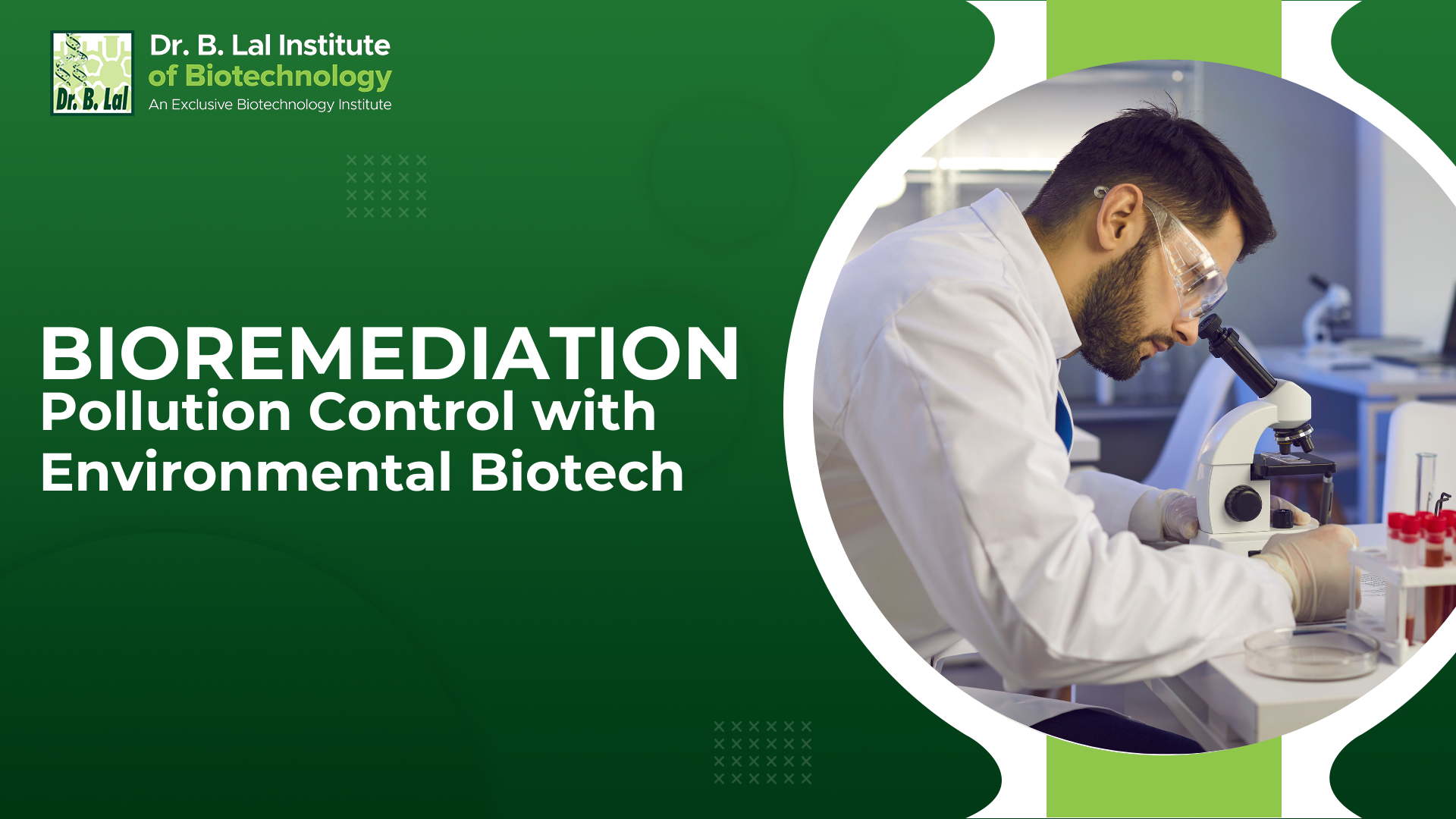
Bioremediation: Pollution Control with Environmental Biotech
As we've worked to improve our industries and lifestyles, we've also made big environmental messes. Pollution used to be a small-scale problem, but now it's a huge threat worldwide, hurting nature and people alike. Luckily, there's a hopeful solution: environmental biotechnology. One cool method is bioremediation, which uses living things to clean up pollution. This blog breaks down what bioremediation is, and how it works, and shines a spotlight on places like the Dr. B Lal Institute of Biotechnology, a top biotechnology placement college, where they're working hard to make these eco-friendly ideas a reality.
What is Bioremediation?
Bioremediation is a green and budget-friendly technique for cleaning up polluted areas like soil, groundwater, and surface water using tiny living beings like bacteria, fungi, and plants, taught at the Biotechnology College In Jaipur. They work together to transform harmful substances into safer ones, playing a crucial role in environmental restoration.
Techniques of Bioremediation
1. Microbial Remediation
Microorganisms like bacteria and fungi are often used for bioremediation, as taught in the TOP biotechnology placements college. They eat up pollutants for energy and nutrients, turning them into harmless stuff. We can use natural or specially made microbes, depending on how tough the pollutant is.
2. Phytoremediation
Phytoremediation is a method where plants absorb and break down pollutants from soil and water. Some plants, called hyperaccumulators, are really good at taking in heavy metals and other harmful substances, a focus at the Best Biotechnology Placement College. This process not only cleans up pollution but also helps bring back biodiversity and stop erosion in the environment.
3. Mycoremediation
Fungi are amazing at cleaning up the environment by breaking down pollutants. They use a process called mycoremediation, as explored in the curriculum at the Biotechnology College In Jaipur. The mycelium, which is like its roots, releases enzymes that can break down tough stuff like petroleum, pesticides, and industrial waste. This helps a lot in dealing with pollution in soil and water.
Applications of Bioremediation
Bioremediation has been successfully applied in various scenarios, including:
- Oil Spills: Microbial remediation is often used to address hydrocarbon spills, where microbes are introduced to speed up the natural degradation process of oil.
- Heavy Metal Contamination: Plants and fungi are used to clean up sites contaminated with heavy metals, such as lead, mercury, and arsenic, preventing these toxins from entering the food chain.
- Organic Pollutants: Bioremediation techniques are employed to decompose organic pollutants like pesticides and solvents, which are hazardous to human health and wildlife.
Challenges and Future Directions
Bioremediation has perks, but it's slow and needs specific conditions for microbes to work, as discussed at the TOP biotechnology placements college. Some pollutants are tough to get rid of completely. Scientists are working on improving it using genetic engineering, nanotech, and better processes.
BIBT: A Pioneer in Environmental Biotechnology Education
The Dr. B Lal Institute of Biotechnology (BIBT) leads in teaching and researching environmental biotechnology, being recognized as the Best biotechnology college in Rajasthan. With advanced courses and facilities, BIBT prepares students to solve environmental issues using innovative biotechnology. Their focus on excellence and sustainability positions them as key influencers in bioremediation and environmental restoration.
Explore how bioremediation uses environmental biotechnology for effective pollution control and discover the pivotal role of BIBT in advancing this field.
Made it this far? That means you're curious—and we love that! Ready to test your passion for biotechnology? Click below to find out 👇🏻
Biotechnology Aptitude Test




Your email address will not be published. Required fields are marked *